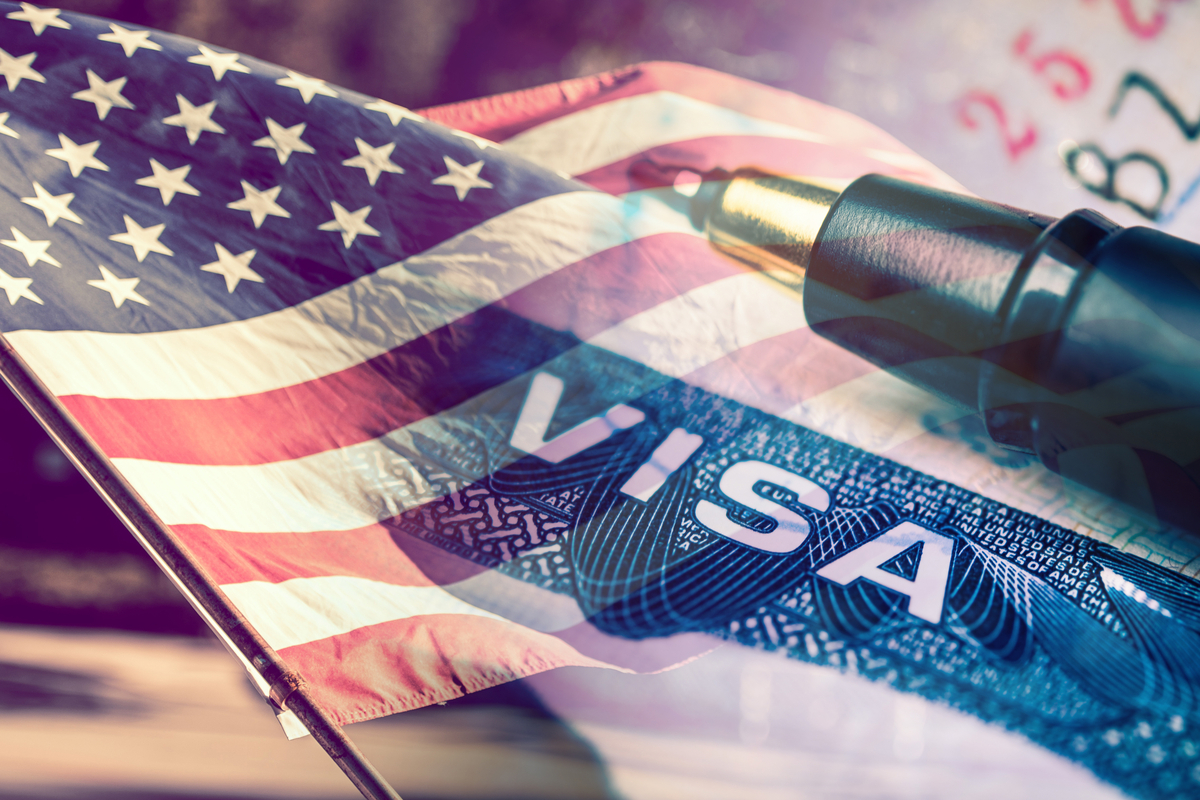In late June 2020, President Donald Trump signed an executive order freezing new visas for foreign workers until the end of 2020. President Trump’s order stems from the culture of protectionism that surrounds his administration; he cited the order as a way to preserve American jobs when unemployment is high as a result of the arrival of COVID-19. The executive order also continues the freeze on green cards for new immigrants through December 31, 2020. We provide this guide so you know exactly which visas are impacted by President Trump’s executive order and the consequences you might face as a result.
Which Visas Did President Trump Freeze with His Executive Order?
The United States grants a variety of different visas for those who come to the country. President Trump froze the issuance of five different types of visas related to foreign workers in the United States. They are:
- H1-B visas are temporary worker visas issued to those who work in specialty occupations. According to the State Department, those who receive H1-B visas must have a college degree or equivalent and the group includes fashion models, those who work in government-to-government research and development, and special Department of Defense projects.
- H2-B visas are general temporary worker visas for those who do not work in agriculture.
- H-4 visas are non-immigrant visas issued to the spouses and dependents of those who hold H visas, including H1-B and H2-B visas.
- J visas are a broad class of visitor visas that are issued to those who come to the United States for an exchange program. Examples of those who receive J visas are camp counselors, doctors, interns, students, teachers, and official government visitors.
- L visas are issued to those who work as managers or executives and worked for the same employer abroad for one year within the three previous years.
President Trump’s executive order did provide exemptions for healthcare workers and scientists who treat and research COVID-19, college professors, and those working in food-related industries.
What Impact Does Freezing Green Cards and Visas Have on Foreigners?
Those who receive temporary work visas aspire to eventually get a green card, so they do not have to constantly live in limbo, wondering whether they will get the visa they need to stay in the United States. Those who had high hopes of receiving a green card by the end of the year also must cope with being in limbo. The exact impact of the freeze varies based on the type of visa and the authorized amount of time a non-immigrant foreign worker has in the United States. Foreign workers, their families, and members of exchange face the following consequences:
Leaving the United States
A visa gives a non-immigrant worker the right to apply for entry into the United States. Once the United States permits a foreigner entry, they also receive a duration of status that states how long they can stay in the country, which can vary from a few months to a few years. Keep in mind that your status is different from your visa expiration date. If your visa has expired or will expire before the end of 2020, you will not automatically need to leave the country as long as your status is still valid. However, once your status changes, you have two months to leave the United States.
Potential Job Loss
The freeze on visas puts some U.S. companies at risk. Some industries need foreign workers because workers in the United States cannot or will not fill the roles they need. Restrictions on hiring can spell disaster and potentially put some organizations out of business. Non-immigrant workers in the U.S. who lose their jobs have a status change, which requires them to quickly find another job or leave the country.
Increased Economic Activity and Jobs Abroad
Restricting candidates for U.S. companies and multinational companies who do business in the United States forces them to move jobs outside the U.S. Depending on what part of the world a worker comes from and which other countries they might find eligibility to work, the opportunity for jobs outside the United States might increase. Yet, sending jobs overseas reduces the jobs available for citizens, green card holders, and visa holders in the U.S. This has the potential to devastate households. During hard times, U.S. citizens can get government assistance for food and seek help from other programs. Visa holders are ineligible and many permanent residents have to wait for five years for assistance.
Loss of Educational Opportunities
The U.S. State Department states that those who experience different cultures through educational and cultural exchanges gain a deeper understanding of themselves as others. Additionally, exchange programs deepen knowledge about foreign cultures and strengthen relationships with those from other countries. Freezing J visas until the end of 2020 prevents exchange participants from reaping these benefits. Whether visiting the U.S. as an exchange student, teaching a foreign language to U.S. students or campers, or visiting the U.S. as part of a professional exchange program, most of these programs won’t be able to operate until after 2020.
Economic Uncertainty in Country of Origin
Non-immigrant workers forced to return to their country of origin as a result of the freeze on green cards and visas potentially face economic uncertainty. While the freeze might push certain jobs out of the United States, it doesn’t guarantee that those who return home will have a job waiting for them. Additionally, COVID-19 has negatively impacted the global economy, not only the U.S. economy. Economic uncertainty for foreign workers when they return home translates into potential struggles to meet basic needs such as food, shelter, and clothing.
Get the Legal Help You Need to Navigate the Immigration Legal System
Coping with changes in laws, executive orders, and other issues related to immigration and your status in the United States can overwhelm you. The skilled attorneys Stephenson, Chávarri & Dawson have been helping foreign workers and their families navigate the U.S. Immigration Legal System for decades. We’re here to help you find the best strategy to get the results you need. Contact us today online or at 504-523-6496 to discuss your immigration status and learn more about how the recent executive order freezing visas impacts you and your family.



